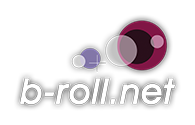Bloggers
can use shield laws if they identify themselves as journalists, are operating the style of journalists, do their due diligence of fact checking and provide full discolsure of their conflicts of interest... But the court holds that the proclamation alone is not sufficient. Unfortunately Ms. Hale did not do these things... If anything, this is now case precedent which can be quoted in order to bolster a bloggers use of shield laws, and comes off as a victory for those who want to consider bloggers as journalists... It is only Ms. Hale who cannot use the New Jersey Sheild Law as a defense against libel, slander or as a way to protect her sources... The ruling also held that the operators of the pornographic web site are not public figures and do not have to prove anything other than a possible harmful statement was made against them...
Basically the rejection of Ms. Hale's claim that she is a journalist comes down to these three paragraphs...I have added the bolding, but the text is otherwise unaltered. Quoted from the original webpage at
http://www.leagle.com/unsecure/page.htm?shortname=innjco20100422375
It is not enough to simply self-proclaim oneself a journalist. Here, the only evidence in support of defendant's claim that she is a newsperson is her own self-serving characterization and testimony as to her intent in gathering information, which the trial court found not credible[
10 ], a determination to which we defer.
See State v. Locurto, 157
N.J. 463, 473-74 (1999).
Defendant has produced no credentials or proof of affiliation with any recognized news entity, nor has she demonstrated adherence to any standard of professional responsibility regulating institutional journalism, such as editing, fact-checking or disclosure of conflicts of interest.
Defendant's only proof that Pornafia qualifies as a news medium is a press release she issued only months before her allegedly defamatory statements appeared on electronic bulletin boards operated by others. The press release publicized that Pornafia was an "information exchange" about fraud in the adult entertainment industry, and its "aim" was to provide "a cost free information resource for victims, potential victims, legitimate industry players, and pertinent government agencies worldwide." However, the statement was vague as to how exactly defendant intended to accomplish Pornafia's goals. Were people simply going to post comments about their experiences, with defendant providing the platform for that "information exchange"? Was defendant going to provide links to other outside sources of information? Did defendant intend to do any "investigative reporting" to provide content for the site?
As to the latter, while defendant listed voluminous articles and posts she read while researching the online porn industry, she produced no notes of conversations, meetings or interviews with contacts or sources or, for that matter, of any investigation independent of the writings of others. In fact, defendant admitted that she never attempted to contact the principals of TMM to ascertain their version of the security breach incident. Nor did she provide any details about any fact-checking on the information she collected.
Most significant, defendant never identified herself to any of her so-called sources as a reporter or journalist so as to assure them their identify would remain anonymous and confidential, a key factor in the application of the newsperson's privilege. In re Venezia,
supra, 191
N.J. at 271. (
http://www.leagle.com/unsecure/page.htm?shortname=innjco20100422375)
